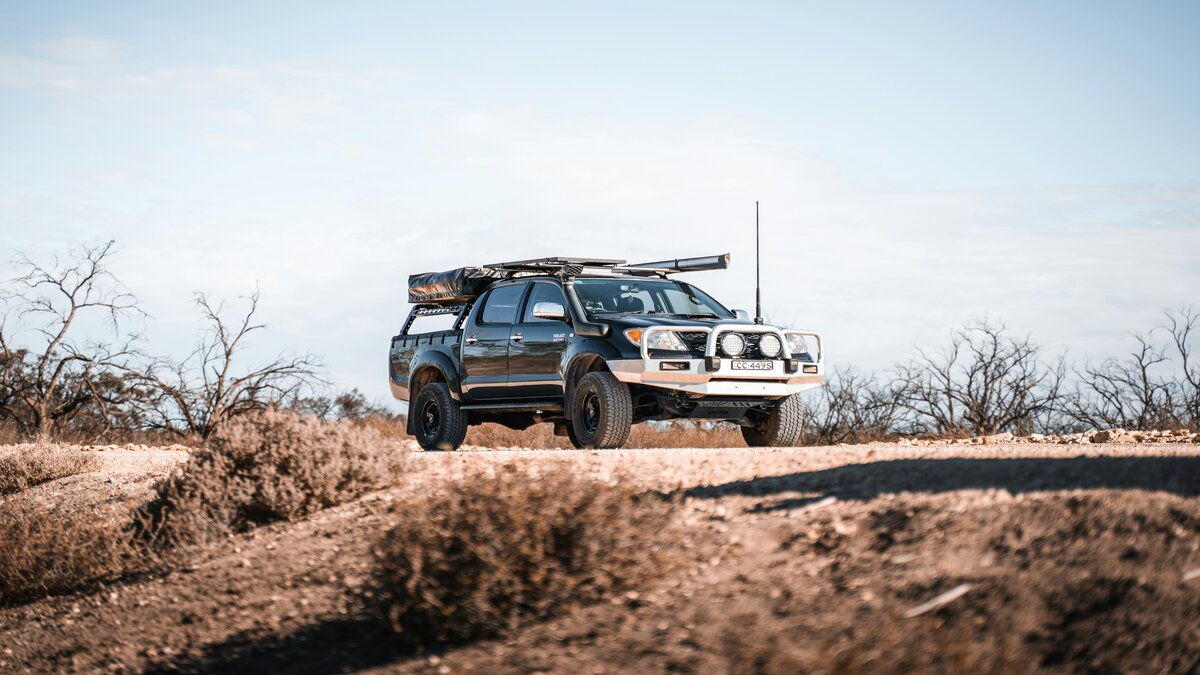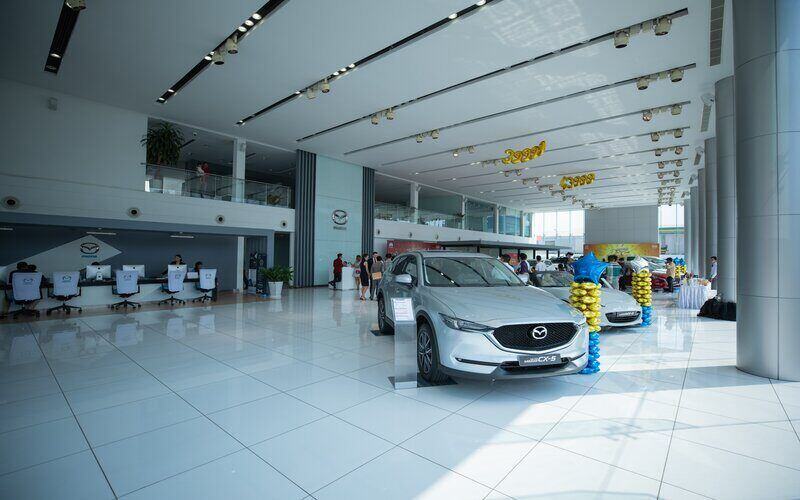You’ve researched for hours, narrowed down the field and are ready to put the pedal to the metal on purchasing a new or used car. Your next move is to tackle the suit-wearing sharks that call car dealerships home - or the private car sale market. This can be an overwhelming task, but the truth is most of our fears are unfounded, while others are easily avoided.
In the market for a new car? The table below features car loans with some of the lowest interest rates on the market.
| Lender | Car Loan | Interest Rate | Comparison Rate* | Monthly Repayment | Interest Type | Vehicle Type | Maximum Vehicle Age | Ongoing Fee | Upfront Fee | Total Repayment | Early Repayment | Instant Approval | Online Application | Tags | Features | Link | Compare | Promoted Product | Disclosure |
|---|---|---|---|---|---|---|---|---|---|---|---|---|---|---|---|---|---|---|---|
5.99% p.a. | 7.12% p.a. | $580 | Variable | New | No Max | $8 | $400 | $34,791 |
| Promoted | Disclosure | ||||||||
6.52% p.a. | 6.95% p.a. | $587 | Fixed | New, Used | No Max | $0 | $350 | $35,236 |
| Promoted | Disclosure | ||||||||
6.28% p.a. | 6.28% p.a. | $584 | Fixed | New | No Max | $0 | $0 | $35,034 |
| Promoted | Disclosure |
Car dealership vs private sale
Car dealerships are renowned for being hard to negotiate with, yet generally what you are sacrificing in price, you gain in peace-of-mind. Cars sold through licensed dealers are typically less likely to break down soon after the purchase date, and if they do, the repairs are often covered by a statutory warranty that guarantees repairs for the affected parts for a period of time.
A car dealership will take your trade in and is likely to also throw in extras such as tinting the windows or include on road costs to get the deal over the line.
The ‘three dealership rule’ can be a handy tool to negotiating across dealerships:
-
Pick a weekend that works best for you and make the time to visit three dealerships close to you that have the model car you desire.
-
Obtain a written quote from the dealerships on your chosen vehicle and pick the lowest.
-
Go back to the other dealers and ask if they can beat it.
On the other hand, buying from a private seller might give you a better chance negotiating a better price. A private seller is likely to have limited experience in selling a car, and is often motivated to sell.
In the private car market, some sellers perform their due diligence and properly valued the car based on its current condition, while others are likely to just whack on a price tag without knowing what’s going on with their vehicle inside and out. In most cases, this means private buyers are likely to have wiggle room in asking for a better price than advertised.
The importance of timing
Timing is of the essence when it comes to negotiating purchase of a new vehicle, with a number of factors at play that can ultimately work for you.
When to shop
End of month and financial year
Shopping for a new car towards the end of each month could be a good tactic in that you might find a dealer short on their targets looking to make an easy sale.
The same can be said about shopping for a new car at the end of the financial year. With dealerships anxious to hit sales targets, you’ll often find deals abound, including offers for free extended warranties, window tinting, a full tank of fuel and other extras.
It’s important however to note Australian car companies are bound to the financial year of wherever their parent company is based, not our own. For example if you are looking to purchase a new Toyota Hilux, being a Japanese manufacturer, Japan’s financial year ends 31 March. With the company looking to close their books on a high, they are inclined to be open to greater price negotiation.
If you are looking into the private sale market, generally winter is considered a popular season to buy as fewer motorists are in the market for new wheels.
Plate clearance
Dealers keen to unload older stock in December are even more motivated in the New Year. Once January arrives, they’ll want to shift as much previous-year stock as possible. This is known as a plate clearance because it relates to the date stamped on the vehicle’s build plate.
Model run-out
If you happen to keep tabs on when the updated version of a car is due for release, you can plan your purchasing strategy around getting the best deal on the soon-to-be-replaced stock. There’s plenty to consider, including the fact that the new model may have vastly improved features, making it a more enticing option for some motorists. However, you’ll likely have more negotiating room when chasing a run-out model compared to its brand new equivalent.
Pricing
Prior research is a good indicator as to how much you should be paying when it comes to purchasing a new car. Tools such as RedBook can provide a comprehensive price analysis of both new and used models for the car you have your eyes on. Couple this knowledge with an understanding of how dealerships price cars and you are armed with tools to assist you in negotiating price.
Sticker price
The vehicle manufacturer sets a retail price that is attached to the car when it leaves the factory. This is known as the sticker price. If a dealer tries to suggest that the sticker price is actually their sale price, you may be about to get ripped off. You can pretty much always do better than sticker price, it just takes some legwork on your behalf.
Dealer hold-back price
The dealer hold-back price is an amount the dealer receives from the manufacturer on every vehicle they sell and typically runs at around 3% of the sticker price. What this means in practice is that the dealer is effectively getting the car from the manufacturer at less than the invoice price, thereby boosting their profit.
Be aware, dealerships may also hide excessive fees at the point of sale to promote a ‘bargain’, therefore having a written quote with all expenses outlined can assist you in price negotiations. Unnecessary charges to watch out for include admin fees, handling charges, advertising fees or any other dealer mark-ups you weren’t told about up front.
The art of negotiating
You’ll often find negotiating does not mean being hard or rude, in fact you are likely to go further if you are polite, respectful and discuss things with a smile on your face. If negotiating with a private seller, it’s important to remember a lot of private sellers will be attached to their car. In fact, they may be more likely to sell and offer a better deal if they feel that their car is going to a good home.
Flexibility
Committing yourself purely to one make, model and colour with specific features means you pass a lot of power to the dealer. Flexibility usually translates to a better deal. With some wriggle room in your preferences, you’ll find that more dealers will have what you want in stock, which means you can get them to out-quote each other.
A private seller is less likely to have experience in selling a car. Therefore, he or she may not have a firm idea as to the minimum price they’re willing to accept. This gives you the best chance of negotiating the price.
Buying from a dealer may make it more difficult to budge on price, however you can negotiate on items such as on-road costs, accessories or extra warranty cover. How much value you place on these ‘extras’ is up to you.
‘If’ and ‘then’ technique
It may not be a technique per se, yet it’s more a simple matter of offering the dealership or private seller an easy-to-digest choice, like saying “If you’ll consider coming down to my price, then I’m prepared to pay for the car right now.” This qualifies you as a genuine buyer who is willing to shake hands on a deal.
Be prepared to walk away
Finally, always be prepared to follow in the footsteps of R&B artist Craig David and ‘walk away’ if the dealer fails to budge or offer you a better price than what you may potentially find elsewhere. They may regret leaving your offer on the table, so if you choose to, you can leave your phone number so the dealership can potentially get in touch if they change their mind about accepting your offer.
Consider using a car broker
Just like the property world has buyers agents, the motoring world has car buying services or car brokers. Like a dealer’s day job is to sell cars, a broker’s day job is to buy them and negotiate a better deal for you.
A broker often has access to fleet-level pricing and has relationships with several dealerships to help source a car for you at a good price. There are usually no upfront fees, however a fee may be baked into the final price - but this is usually outweighed by the savings made.
John Cadogan, from car buying service AutoExpert, says if you aren’t prepared to negotiate then a car buying service can be invaluable.
“Dealers are so good at ambush, they’ve got such a finely-tuned system in place to extract money,” Mr Cadogan told Savings.com.au.
“They’re more than happy to capitulate on the price if they can gut you on the trade in, gut you on the paint protection and gut you on the warranty.”
Image by Antoni Shkraba via Pexels






 Denise Raward
Denise Raward
 Harry O'Sullivan
Harry O'Sullivan

 Emma Duffy
Emma Duffy
 Dominic Beattie
Dominic Beattie

